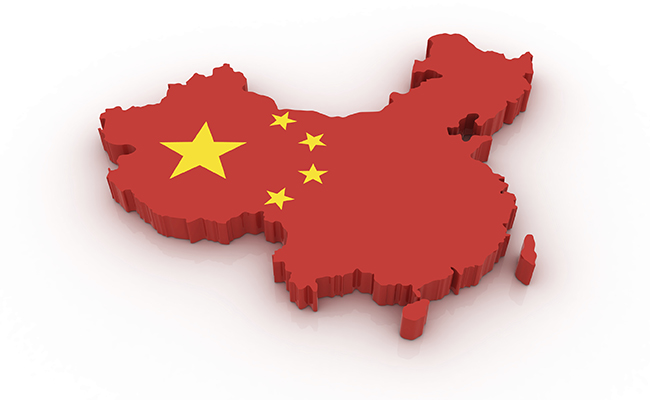The week that was: China is set to overtake the US as the world’s largest trader; firms delay listing during IPO thaw; Wozniak endorses China’s Steve Jobs; and Beijing’s probe sends Nu Skin shares down.
China to be crowned the world’s largest trader
Data released by China’s customs administration over the last weekend shows that in 2013, the total trade value of the world’s second-largest economy reached $4.16 trillion (a 7.6% year-on-year increase), making China, very likely, the biggest trading nation in the world.
The current champion—the US, has not released its full year figures yet. But in the first 11 months of 2013, its trade totaled $3.5 trillion, giving it very little chance to top China. Export growth (7.9%) outpaced that of import (7.3%), raising China’s foreign exchange reserves to a new high of $3.82 trillion.
Of course, skepticism about the authenticity of China’s export data remained, especially after China posted a stronger-than-expected export growth last month. Analysts have warned that fake export invoices are used as a way to move capital into the country. But Rajiv Bishwas, Chief Economist (Asia-pacific) at his, told BBC that the gap between the first and second place is so big that even if China’s number were inflated, the position of the two countries will unlikely alter.
Tencent keeps expanding in internet finance and e-commerce
Asia’s largest tech giant has made new moves in China’s hottest sectors this week. According to Beijing newspaper the Global Times, Tencent is working with China Asset Management Co. Ltd (and possibly another three fund firms in the future) to launch fund products for users of its online payment service Tenpay.
This report comes in seven months after Alibaba, Tencent’s vigorous adversary, started to sell financial products to online shoppers through a platform called Yu’e Bao, or Balance Treasure. According to Alibaba’s fund partner, Tian Hong Asset Management Co. Ltd, Yu’e Bao has attracted more than 49 million buyers, from whom the firm fetched more than $41.7 billion, making it one of the largest public funds in China.
While there’s a lot of catching up to do for Tencent in internet finance, it’s also chasing Alibaba in online shopping. According to the South China Morning Post on Thursday, the Shenzhen-based firm announced a $200 million investment into trade and warehousing operator China South City Holdings. The two companies will collaborate in online and offline trade services, “including outlet services for branded goods, online payment and warehousing and logistics arrangements”, SCMP reported.
Similarly, Alibaba entered a partnership with Haier last month, in hope of taking advantage of the appliance makers’ logistics network throughout the country’s third and fourth-tier markets.
IPO restarts, so do dramas
China’s 15-month IPO freeze is finally thawing, as the Shanghai Stock Exchange sees the first new issuer today since November 2012.
But some companies are not as lucky—five firms waiting to list on the Shenzhen Stock Exchange, a secondary market for small and medium-sized enterprises and start-ups, have decided to hold back their plans. According to The New York Times, the companies halted their IPO process on Monday after China Securities Regulatory Commission’s (CSRC) Sunday announcement of tighter restrictions on new listing practices.
The commission warned to monitor issuers that attempted to inflate share valuations and ordered that companies sought to price their offer shares at a higher price-earnings ratio than their peers in the secondary market must publish repeated risk warnings three weeks prior to subscriptions. Companies that fail to comply will be barred from listing.
Another company, Jiangsu Aosaikang Pharmaceutical, also suspended its listing over the past weekend after its ultra-high offering price drew questions about whether the initial shareholders simply intended to cash out. The media called the behavior a slap in the face of the CSRC, which denied any interference with Aosaikang’s decision to pull up.
Beijing probes Nu Skin’s “pyramid scheme”
Bumpy road ahead for Nu Skin product sellers in China—the government’s mouthpiece People’s Daily published a series of articles throughout the week, questioning the legality of the American company sale practices.
In the most recent piece on posted on Thursday, the paper reinforced that Nu Skin is lying to the customers and “brainwashing” its salespersons—both typical characteristics of a pyramid scheme. “Since its establishment in Utah in 1984, skepticism and investigations about its business model have never ceased,” the paper said. The paper also struck back on the healthcare product company’s response to the articles, “Nu Skin said the reports contain inaccuracies and exaggerations, but it didn’t specify what they are”.
Following the reports, China’s State Administration for Industry and Commerce and the Ministry of Commerce have said that they are looking into the claims, sending Nu Skin’s share price further down. The company has seen nearly 40% of its market cap evaporate in the past few days.
Is Wozniak the ultimate Xiaomi fan?
The other Apple co-founder Steve Wozniak was in town this week—he appeared at Xiaomi’s Beijing headquarters in a Tesla Model S, according to Tech In Asia, and then gave a speech at GeekPark 2014, a homegrown high-tech and start-up fair.
Wozniak endorsed Xiaomi, China’s most popular domestic phone brand, by personally using a Xiaomi Mi3 smartphone and telling the press that Xiaomi “is good enough to break the American market”. He also said that the phone was given to him as a gift and “I’ll tell you if I have problems”.
An interesting sidelight: according to The Wall Street Journal, when reporters asked Wozniak if he was being paid to cheerlead for Xiaomi, the frequent public speaker said that he only gets 20% of the original fee, while the rest goes to taxes and his agent. “I do not do this for money,” he said.




















